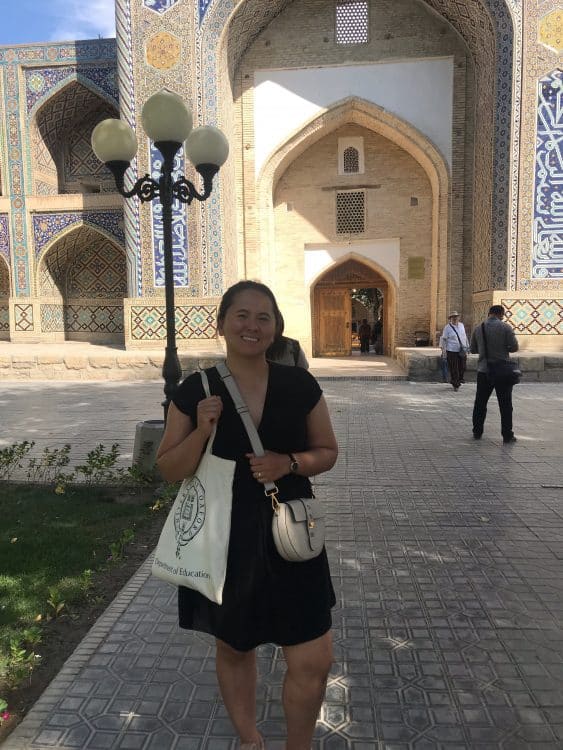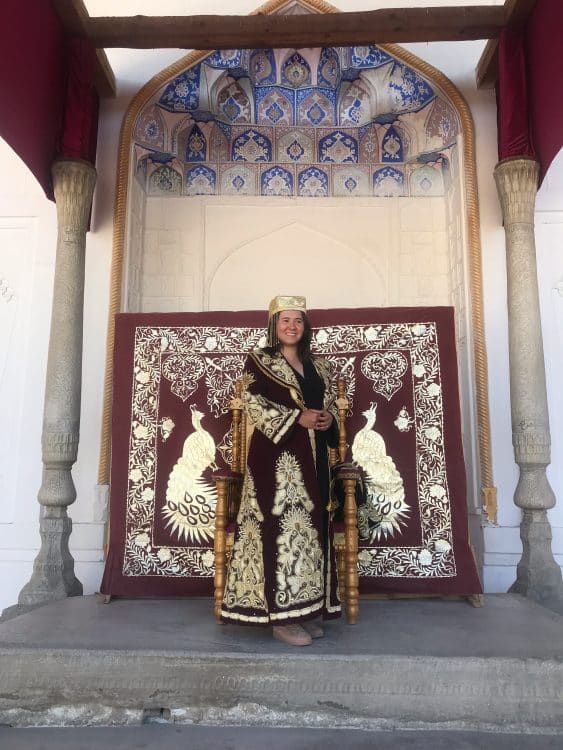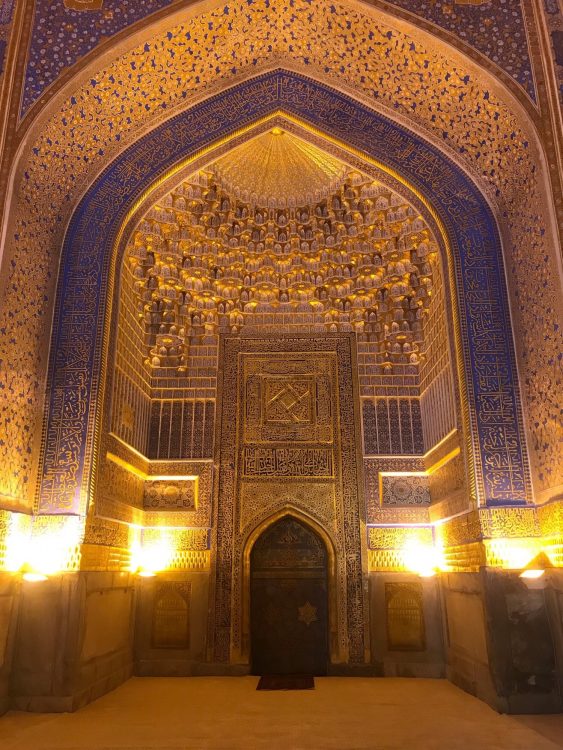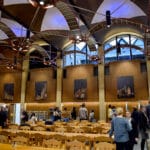Matt Greenwood Travel Scholarship Provides Funding for Student Book Project in Uzbekistan
12 Nov 2019
The Matt Greenwood Travel Scholarships were established in 2017 by the students, staff, alumni and friends of the Hall in memory of Matt Greenwood (2013, Engineering), who loved to travel and sadly passed away while a student at St Edmund Hall. Each year, a prize of up to £1000 per year is be awarded for travel in the UK or anywhere in the world for good purposes, with a particular emphasis on projects which embody Matt’s gifts of courage, adventure and concern for others.
This year, in the Award’s second year, Olga Mun was awarded to support her travels to Uzbekistan over the summer for her project collating inspirational stories for her children’s book focusing on themes of feminism and female empowerment.
Olga provides an account of her experiences traveling in Uzbekistan supported by the Matt Greenwood Travel scholarship below:

When I landed in Tashkent, the capital city of Uzbekistan, it was a very hot and humid day. Most of the family and friends greeted the arriving passengers, while staying outside the arrivals building, hiding from the sun in the shade. As I was exiting the airport area, I realised that the adventure began.
On my arrival, I was puzzled to see hundreds of white cars. I wondered, does this colour has a special meaning in the country? Why are most of the cars white with only a few of different colours? Dozens of questions started to appear in my head, yet I needed to focus on the main goal of my visit, which was to arrange travels to the ancient cities of Bukhara and Samarkand in order to collect materials for the children’s book about a female scholar from Central Asia.
In order to collect inspirational stories, friends from Central Asia helped me to arrange a few meetings with inspirational women from Uzbekistan. The first meeting I had was with a group of scholars and a second one with a talented female lawyer. Both of the meetings proved to be exceptionally fruitful and informative. Yet after the meetings I was left with mixed feelings. On the one hand I was inspired by the achievement of those women. On the other, I was upset, angered even. They told me of many cases of violence and discrimination against women that is omni-present in modern day Uzbekistan.
I continued by exploring the books in the bookshops that are already available. Some of the available books in the bookstores shocked me. One book in particular. It was a book for girls, with a very pink cover on it, portraying girls as doing the dishes, cleaning and wiping the floors. Curious about learning more about children’s literature in Uzbekistan and the female role models, I continued my travels.

My first visit was to the ancient city of Samarkand. I visited as many museums and archaeological sites as I could. Yet again, what shocked me most was when a museum guide ignored my questions while taking the questions by male visitors. I looked around and I was made aware that I was surrounded by the pictures of men and neither in stories nor in visual sites in the public spaces, were women represented or portrayed as national heroes. Most of the sites I visited were in honour of male leaders: Amir Timur and Ulugbek. At that time, I realised that one needs to write not only one book about female scholars for children but a series of books about female role models, artists, scientists, archaeologists and the list goes on and on.
On my visit to the next city of Bukhara, an interesting story happened. I wrote a short story about it, shared it on social media and have included it below.
“I normally don’t wear costumes as it reminds me of cultural appropriation. This time I did and I have a few reasons of doing so. During my visit to Uzbekistan I was surrounded by men: statues dedicated to men, museums, stories, main mausoleums, male medreses and the driver who at times thought he knows better where should I go and what should I see. But what about women? Are there really no notable women in Uzbek history except mothers or wives?
Not even Tomiris or many female scholars working in Ulugbek’s observatory? What about archaeologists, artists? Or should women only be remembered as members of harems. Some male guides did not even talk to me, only to males in the group. So, I changed one guide and she was awesome! She asked me to call her ‘gidessa’ (feminitive of ‘tourist guide’ in Russian) as she was so proud to be a female guide. So, when all men were posing as kings, I quite intentionally went there and took a picture as well. One woman was so happy, she quickly joined me, we shared a photo fee and we took pictures. A third woman followed shortly. In 5 minutes, there were the three of us there and men were impatiently waiting to take their turn while we were having fun!

Women are being continuously erased from history, from public spaces, from public memory. It’s time to change this process, one photo at a time.”
The story above was very warmly received by my female friends from Central Asia. Overall, the trip was exceptionally inspiring, I collected a lot of materials and took hundreds of pictures and am still going through materials that I collected during the trip. The trip was important not only to collect materials for my children’s book project but also to build my character. I had to negotiate my role as a woman traveling on her own almost at every stage of the trip, either through negotiating fares with a driver or being heard and talked to during the excursion. I was always being reminded of my own background and positionality as a young female scholar. Yet, towards the end of the trip, I negotiated firmly at bazaars and asked my questions quite vocally. In other words, this trip made me realise that, as women, and as women from Central Asia, we have to stand strong and not give up in the face of everyday challenges that could be seen as small but could really get under your skin and affect confidence levels when experienced on a daily basis.
After the trip I am even more inspired to serve as a role model myself and to support fellow women from Central Asia. Moreover, I realised that rather than writing one book, there is a need of a larger collection of books on gender, feminism and all sorts of entertaining and critical literature for all, where one could read about female historical figures and current role models. Inspired by the trip, I am already developing a series of stories to publish online about my experiences of being a female researcher from Central Asia. This is only the beginning and I am thankful to the Matt Greenwood Travel award for the opportunity to challenge myself, learn about the situation of women in Uzbekistan and re-gaining confidence in becoming a scholar with a social mission to support and encourage fellow female researchers.
Categories
Related News

